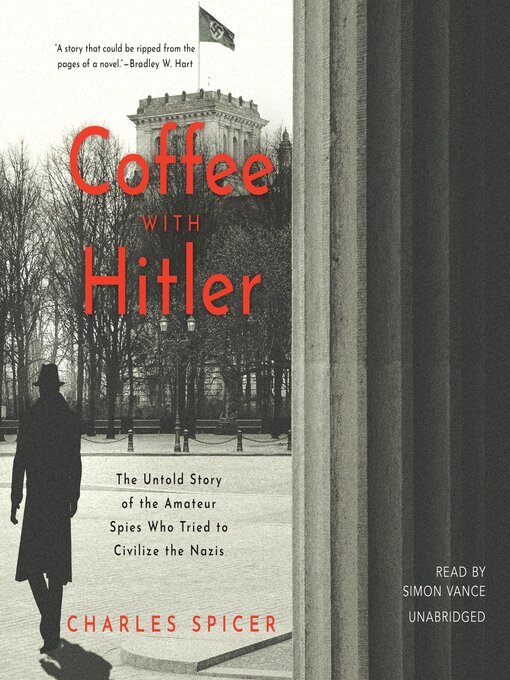The fascinating story of how an eccentric group of intelligence agents used amateur diplomacy to penetrate the Nazi high command in an effort to prevent the start of World War II
"How might the British have handled Hitler differently?" remains one of history's greatest "what ifs."
Coffee with Hitler tells the astounding story of how a handful of amateur British intelligence agents wined, dined, and befriended the leading National Socialists between the wars. With support from royalty, aristocracy, politicians, and businessmen, they hoped to use the recently founded Anglo-German Fellowship as a vehicle to civilize and enlighten the Nazis.
At the heart of the story are a pacifist Welsh historian, a World War I flying ace, and a butterfly-collecting businessman, who together offered the British government better intelligence on the horrifying rise of the Nazis than any other agents. Though they were only minor players in the terrible drama of Europe's descent into its second twentieth-century war, these three protagonists operated within the British Establishment. They infiltrated the Nazi high command deeper than any other spies, relaying accurate intelligence to both their government and to its anti-appeasing critics.
Straddling the porous border between hard and soft diplomacy, their activities fueled tensions between the amateur and the professional diplomats in both London and Berlin. Having established a personal rapport with President Franklin D. Roosevelt, they delivered intelligence to him directly, too, paving the way for American military support for Great Britain against the Nazi threat.
The settings for their public efforts ranged from tea parties in Downing Street, banquets at London's best hotels, and the Coronation of George VI to coffee and cake at Hitler's Bavarian mountain home, champagne galas at the Berlin Olympics, and afternoon receptions at the Nuremberg Rallies. More private encounters between the elites of both powers were nurtured by shooting weekends at English country homes, whisky-drinking sessions at German estates, discreet meetings in London apartments, and whispered exchanges in the corridors of embassies and foreign ministries.

